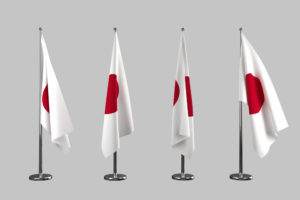Giving feedback is not just a language issue
There has been a marked increase in the number of clients asking me to provide training for Japanese expatriate managers in Europe on giving feedback and performance appraisals. I’d like to think this is because our marketing is having an impact – but on talking to the HR departments of our customers, it seems they have become aware of an increasing number of workplace conflicts between Japanese managers and their teams.
European employee dissatisfaction with Japanese managers’ feedback style is not a new issue. Complaints usually include that no feedback is given, or only negative or quantitative feedback. I usually explain that giving feedback is not as embedded in Japanese workplace culture as in Europe. Also, Japanese employees are used to working collaboratively as a team rather than having individual performance evaluated. The best employees are deemed to be the ones who look to improve themselves without having to be told.
I remember when I was working in Japan in the 1990s, many Japanese companies started introducing seika shugi (performance based systems) but often not very successfully. Evaluating individuals ended up destroying the collaborative, knowledge sharing work environment that is one of the strengths of the Japanese workplace.
The Japan HQ appraisal systems that have developed since the 1990s are much more quantitative than European systems. The manager gives numerical scores not just for performance and achievement of objectives, but also of behaviours, mindsets and competences. In Europe, we usually just give qualitative assessments of the latter, such as “meets expectations” or “exceeds expectations” or “below expectations”.
I suppose the Japanese quantitative approach seems more objective, and less personal. Numbers can be analysed across the whole company, and are not subject to interpretation or language barriers.
European managers use qualitative appraisals to stimulate a dialogue about what expectations they have for each individual and then come to an agreement on development opportunities for individual employees in terms of support that they need from the manager, training needs and potential career paths.
The norms of the workplace are rooted in our educational systems
My experience of the Japanese education system is that exams are of factual knowledge and knowing how to do something, often using multiple choice tests. Such exams assume there are clear right and wrong answers.
European education focuses more on critical thinking and understanding the reasons behind something. Exams are essay based, even in science. Scores are partly on getting the facts or the methodology right, but also on the quality of your arguments and the evidence you bring to prove your point.
Consequently, European employees do not unquestioningly accept numerical scores for individual behaviours, mindset and competences. They expect a manager to set clear expectations, give regular feedback and then be able to explain, with evidence, why the employee has met or not met them when challenged. The millennial generation is particularly demanding in this respect. No wonder Japanese managers need training on this – it’s not just a language issue.
This article was originally published in Japanese in the Teikoku Databank News and also appears in Pernille Rudlin’s new book “Shinrai: Japanese Corporate Integrity in a Disintegrating Europe” – available as a paperback and Kindle ebook on Amazon.
For more content like this, subscribe to the free Rudlin Consulting Newsletter. 最新の在欧日系企業の状況については無料の月刊Rudlin Consulting ニューズレターにご登録ください。
Read More Pernille Rudlin is interviewed by BBC World Service Business Matters on Theresa May’s trade delegation visit to Japan and the likelihood of being able to get any kind of commitment to a trade deal. You can hear it or download it
Pernille Rudlin is interviewed by BBC World Service Business Matters on Theresa May’s trade delegation visit to Japan and the likelihood of being able to get any kind of commitment to a trade deal. You can hear it or download it